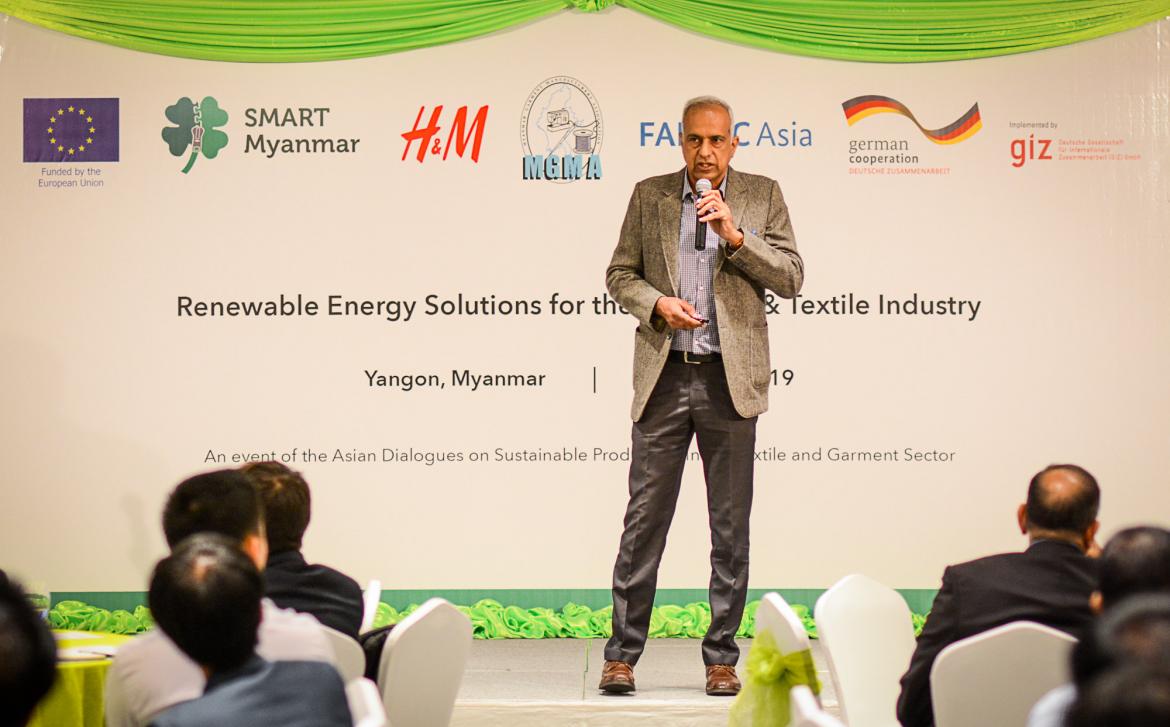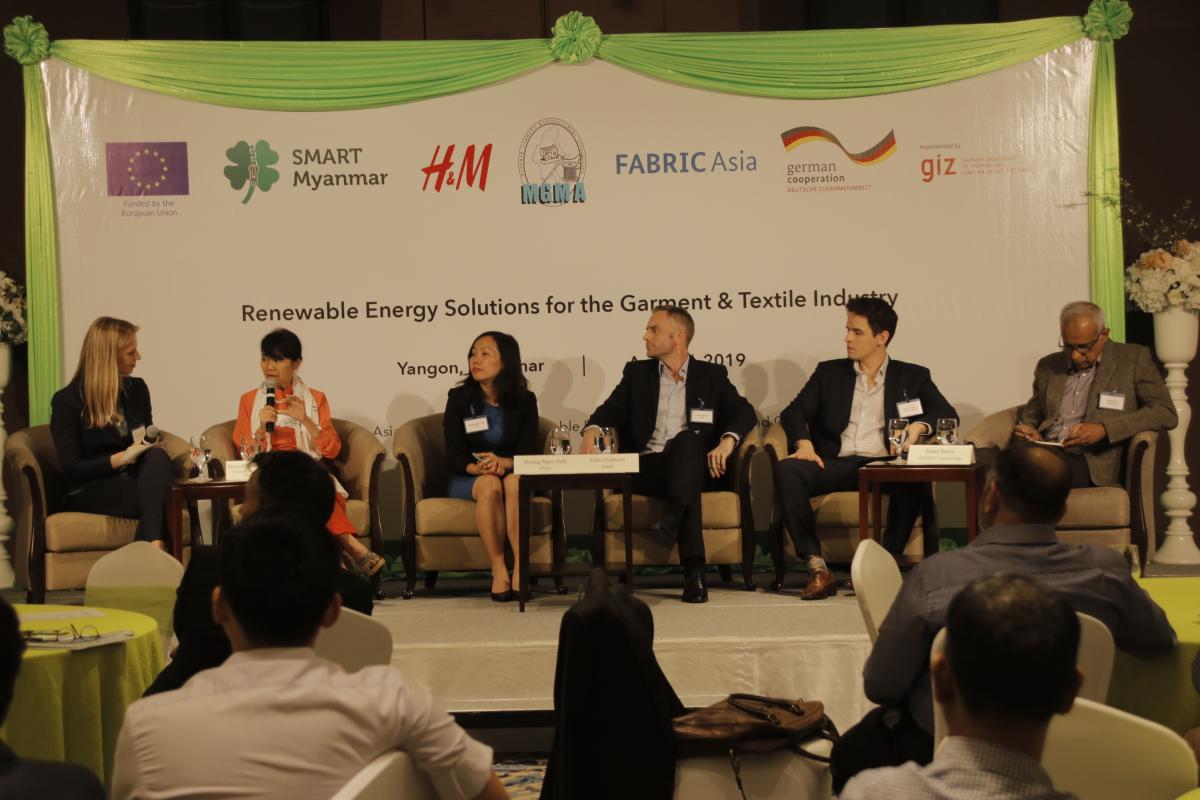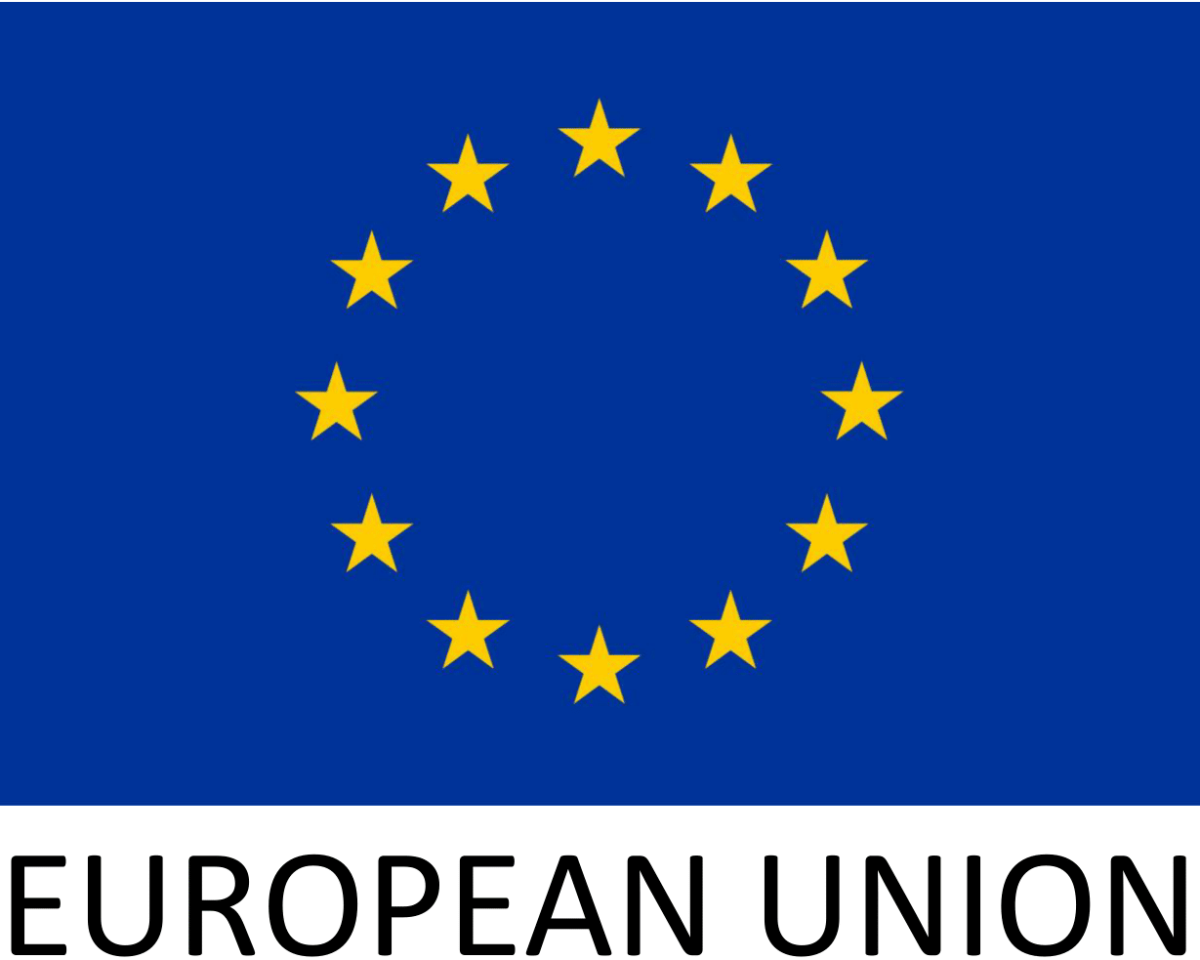
On April 3rd at Lotte Hotel in Yangon, the Deutsche Gesellschaft fur Internationale Zusammenarbeit (GIZ) GmbH, the Myanmar Garment Manufacturers Association (MGMA), the EU funded SMART Myanmar project, the Swedish retailer H&M Group organized a conference and mini-exhibition on renewable energy solutions for the garment and textile industry. Apart from sharing good practices throughout the region, 180 participants from factories, regional producer associations, solar companies and development partners discussed success factors and challenges on the way towards greater sustainability in the supply chain and learned about technological solutions and funding options.
Opening remarks were provided by Daw Khine Khine Nwe, Secretary General of the MGMA, as well as by Mr. Werner Lange Cluster Coordinator GIZ Textile Cluster.
"MGMA members are beginning to better appreciate the business value in saving energy. Yes, it's better for the planet to reduce energy consumption, but it is also necessary to stay competitive as a company. A factory with a steam recycling system, for instance, will reduce monthly operation cost and can invest that money for an even more sustainable future of the business." - Daw Khine Khine Nwe, General Secretary, Myanmar Garment Manufacturers Association (MGMA)
Then, representatives from H&M Group introduced H&M Group's global agenda to reduce the carbon footprint in its supply chain and encouraged participating suppliers to invest in energy efficiency, greenhouse gas reduction and renewables.
"H&M Group is committed to have a climate neutral supply chain by 2030. To reach this goal, we need to create collaborations to assist our business partners to improve energy efficiency and switch to renewable energy sources. Today's event is an important milestone to expand the dialogue on energy efficiency and renewable energy solutions for the garment sector in Myanmar in order to form the collaborations that enable actions." - Felix Ockborn, Sustainability Manager, H&M Group
Moreover, SMART Myanmar, an EU funded project working on environmental and social improvements in Myanmar's garment industry, presented on the current energy mix used by garment factories in the industry. One of SMART Myanmar's senior technical advisors, Mr. Rajat Batra, from the environmental consultancy SUSTENT, gave an overview on important considerations factories need to make when considering to install solar PV, solar thermal, rice husk pellet boilers and steam recycling systems.
"Seven garment factories in Myanmar have installed, or will soon install, rooftop solar PV or solar thermal and several other factories have recently installed rice husk pellet boilers. This is good progress compared with a couple years ago. We organized this event because we are interested in seeing how we can learn from these experiences, accelerate, expand and normalize this switch to renewables." - Jacob A. Clere, Team Leader of SMART Myanmar
In the afternoon, as part of their series "Asian Dialogues on Sustainable Production in the Textile and Garment Industry", GIZ representatives facilitated and moderated discussions with visting garment associations from Bangladesh, Cambodia, China, Pakistan and Vietnam. Discussions focused on sustainable production best practices that are already being achieved in the region and further needs in order to expand and accelerate energy saving and renewable technologies.
"The topic of today's event - renewable energy - is directly linked to the question if and to what extent smaller and medium sized companies can save costs, compete in international markets and fulfill brands requirements for sustainability. As GIZ, we are glad to drive the exchange of regional experiences on environmental sustainability and to contribute to improved knowledge on technological and finance solutions. The Asian Dialogues stand for joining forces for a strong and sustainable textile and garment production in Asia". - Marc Beckmann, Project Director GIZ FABRIC











